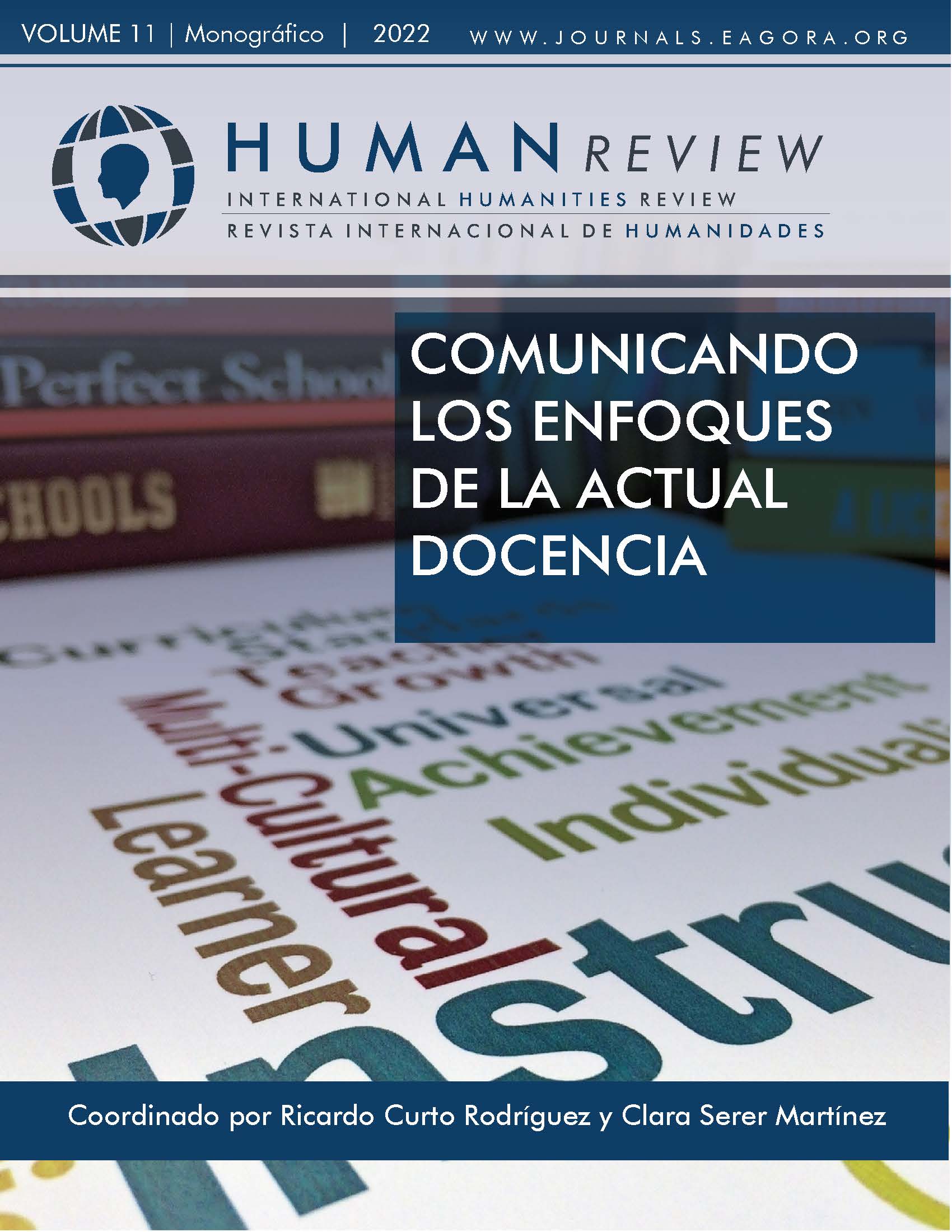Strategy of a New Pedagogy in Higher Education
Expanded Education in Higher Education
DOI:
https://doi.org/10.37467/revhuman.v11.3869Keywords:
Education, Educational experiments, Communication, Educational sciences and environment, Knowledge, Teaching practiceAbstract
The new pedagogical practices seek a path where the educator meets the learner horizontally. Since knowledge is not limited to a classroom. That is why the term expanded education arises, which supports the idea that education transcends and goes beyond school and empathizes with the new technological communication scenarios. The objective of the research was to demonstrate and categorize the expanded education in three cases of the UNIMINUTO University, which impacted from the academy to the transformation in pedagogical practices in relation to the interaction and exchange of knowledge.
References
Amador, J. y Muñoz, G. (2018). Comunicación-Educación en Abya Yala: lo popular en la reconfiguración del campo. Nómadas 49.
Barrientos-Báez, A., Barquero-Cabrero, M. y Rodríguez-Terceño, J. (2019). La educación emocional como contenido transversal para una nueva política educativa: el caso del grado de turismo. Revista Utopía y Praxis Latinoamericana, 24(4), 147-165. https://produccioncientificaluz.org/index.php/utopia/article/view/29796
Barrientos-Báez, A., Gallego-Jiménez, G. M., Caldevilla-Domínguez, D. y Salazar-Martínez, R. Á. (2021a). Comunicación y tecnología: beneficios para la acción tutorial en la educación inclusiva. Revista Inclusiones, 8, 01-20. https://revistainclusiones.org/index.php/inclu/article/view/2586
Barrientos-Báez, A. González Suazo, L. y Caldevilla-Domínguez, D. (2021b). Nuevos escenarios educativos a partir del covid-19 en la educación universitaria. Perspectivas de la Comunicación, 14(2), 149-170. http://www.perspectivasdelacomunicacion.cl/
Bernstein, B. (1998). Pedagogía, control simbólico e identidad. Ediciones Morata.
Cabaluz, F. (2015). Pedagogía militante. Colectivo Diatriva. Escuela Pública Comunitaria. Clacso.
Díaz-Barriga, F. y Hernández, G. (2002). Estrategias Docentes para un aprendizaje significativo. Una interpretación constructivista. 2da. Edición. McGraw Hill.
Ferry, L. y Renaut, A. (2001). Heidegger y los modernos. Ed Paidós.
Grundy, S. (1991). Producto o praxis del currículum. Ediciones Morata.
Martín-Barbero, J. (1997). Heredando el futuro. Pensar la educación desde la comunicación. Nómadas, 5.
Mockus, A. y Corzo, J. (2002). Análisis Político - Habermas, Jürgen Verdad y justificación. Editorial Trotta.
Mora, A. y Muñoz, G. (2016). ¿Qué entendemos hoy por Comunicación-Educación en la cultura en América Latina? Propuesta de reconfiguración del campo desde la vida cultural. Uniminuto. https://repository.uniminuto.edu/handle/10656/5392
Muñoz, G. (2016). Comunicación-educación en la cultura para AL. Desafíos y nuevas comprensiones. Uniminuto.
Padrón, J. (2001). Programa de epistemología. Seminario de epistemología. Doctorado en Ciencias Humanas. Universidad del Zulia.
Plaza, J. (2019). Aula Abierta. Diario de Campo. Tecnocampo.
Rozada, M. (1997). Formarse como profesor. (Guía de textos para un enfoque crítico). Akal Ediciones.
Yánez P. (2018). Estilos de pensamiento, enfoques epistemológicos y la generación del conocimiento científico. Revista Espacios, 39.
Walsh, C. (2016). Interculturalidad crítica y pedagogía decolonial: apuestas (des)del insurgir, re-exisir y re-vivir. Uniminuto.
Zizek, S. (2016). Acontecimiento. Editorial Sexto Piso.
Downloads
Published
How to Cite
Issue
Section
License
Those authors who publish in this journal accept the following terms:
- Authors will keep the moral right of the work and they will transfer the commercial rights.
- After 1 year from publication, the work shall thereafter be open access online on our website, but will retain copyright.
- In the event that the authors wish to assign an Creative Commons (CC) license, they may request it by writing to publishing@eagora.org









